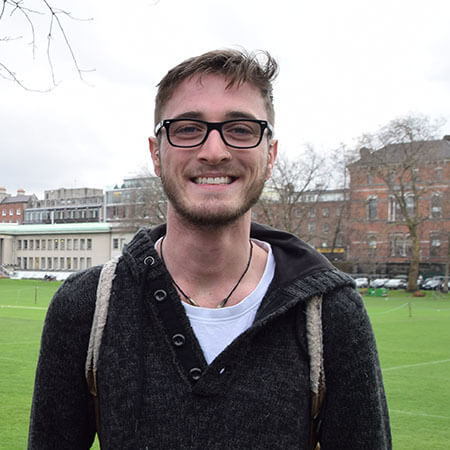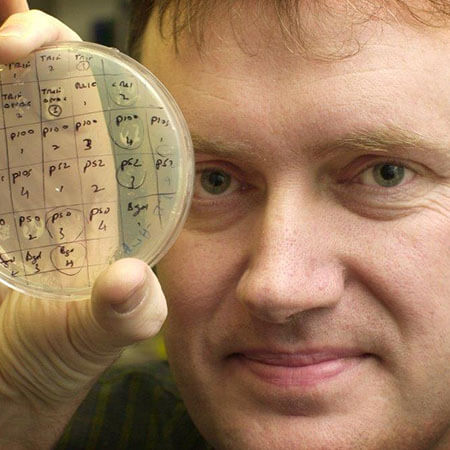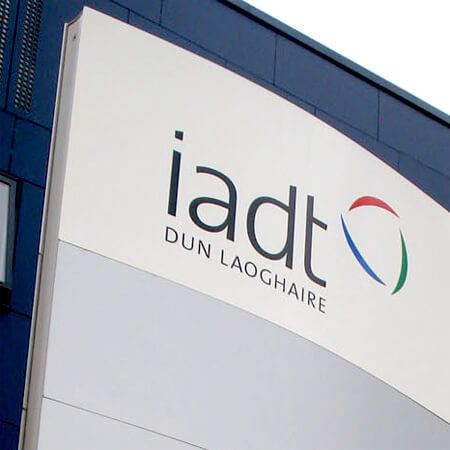What’s being discovered at Dublin’s third-levels?
Postgraduate degrees are increasingly useful for people who want to stand out in the jobs market. Much of the focus here has tended to be on taught masters programmes, but the skills picked up during a masters by research or a doctoral (PhD) programme are invaluable: you will learn about how to research and evaluate information and then effectively communicate what you have learned. We spoke to four students about their research projects and what’s next for them.
Lisa Koep, PhD candidate at the school of marketing in DIT’s college of business

Lisa Koep
How can firms communicate their achievements and aspirations in corporate social responsibility? Should they be boastful and risk the charge of ‘greenwashing’? Or should they be more modest and circumspect but risk not getting rewarded for their efforts? My research looks at these challenges, particularly as they affect the food industry.
I did my undergrad in economics and geography at Trinity College and then completed a masters in public relations at DIT. I then spent eight years as a manager with Lidl and experienced first-hand the difficulty of communicating CSR, so my research is allowing me delve into it further.
It’s important that research makes a practical contribution [to firms, families and broader society]
My research is funded through the Irish Research Council and Bord Bia through the IRC Enterprise Partnership Scheme. Research is expected to make a contribution to concepts and theory but it’s important that it also makes a practical contribution to firms, families and broader society.
It was a big challenge to get used to being back in academia after eight years working. A PhD project is a big commitment and it takes time to find the academic conversation you want to join. I’ve learned that I’m passionate about research and teaching around sustainability and CSR, and want to stay in this field.
Michael Cullinan, PhD candidate with the robotic research group in the mechanical and manufacturing engineering department, Trinity College Dublin

Michael Cullinan
Our research group is mainly focused on personal service robots which help people in the home, do daily tasks or assist disabled or elderly people. This type of robot works in close proximity to people, often in environments which are constantly changing; safety is a critical issue.
My research is in the area of pneumatic artificial muscles. These are flexible tubes which, when inflated, increase their diameter and contract over their length. This can be used to actuate robots, pulling their limbs as the muscle contracts. But there are some barriers for use on mobile personal service robots, and my project aims to reduce some of these.
PhDs need to be a labour of love
I studied mechanical and manufacturing engineering at Trinity for five years and graduated with a masters degree. I have always enjoyed designing and making things, and found computer programming particularly enlightening while at college. I believe that robots have a vital role to play in our future society, but there are still a lot of practical questions to be answered and my research on actuation is a fundamental component of this.
The robotics department was relatively new when I started my PhD and this has given me great freedom to define the nature of the research but at the same time less certainty as to the direction, method and potential outcome.
PhDs need to be a labour of love as there can be many setbacks. Over the course of this work, I have become a more confident designer and researcher and hope this will showcase my abilities and set me up for a career in robotics and technology.
Gearóidín McEvoy, PhD candidate in minority language rights law, school of law and government, Dublin City University

Gearóidín McEvoy
My research focuses on the human rights of minority language speakers and how they struggle to access their rights. I am looking mainly at how people who speak minority languages experience great difficulties when they go to court and, often, their right to a fair trial is violated because there are little or no considerations or services provided to non-mainstream language speakers.
During my undergraduate in law and Irish at UCC, I was exposed to the issues faced by native Irish speakers when they try to use their language in public with state organisations. When I spent a semester abroad in the University of Montana, I saw the struggles faced by the Native American Blackfoot community who were attempting to preserve and protect their language, culture and identity. There were clear parallels to the Irish-speaking community. After my postgrad masters in international human rights law in Finland, I knew I wanted to learn more and to contribute to this field.
My research focuses on the human rights of minority language speakers
I’m really lucky to have two supervisors who are both very encouraging and supportive of my ideas. Ideally, I want to achieve changes in the way we view minority language speakers and their specific needs. I would love to see my research furthering the growing discussion on minority rights and highlighting the dangers we face when minority cultures and traditions are lost.
Shane McGarry, PhD candidate and IRC scholar at An Foras Feasa, Maynooth University

Shane McGarry
Studies have shown that how we read text on screen (ie digital text) is very different to how we read text on paper (i.e. print). We tend to skim digital text, treat it as less important, approach it in a non-linear fashion and spend less time on ‘close reading’. But we still tend to design reading interfaces that mimic print, such as ‘page turns’ and traditional footnotes; we need to start developing interfaces that support these ‘alternative’ ways of reading.
There is so much to do and you can struggle to keep a handle on everything especially as your research shifts
My study is examining new ways of designing for textual content on the web. I’ve always been fascinated by design and how it affects our interaction with systems. I’ve also found reading experiences in these types of digital environments to be very cumbersome, so I wanted to find a way to make it easier and more satisfying for the user.
Before this, I did a bachelor in Information Systems at Middle Tennessee State University and a masters in Digital Media and Design at Northeastern University in Boston and then spent 15 years in the private sector as a software engineer and manager.
PhDs are always challenging. There is so much to do and you can struggle to keep a handle on everything especially as your research shifts. That said, it is has been tremendously satisfying. Too often, we let our focus drift from aesthetics and the reflective nature of a system and we focus solely on the behavioural and functional aspects. I hope to start a conversation about the importance of design and questioning how design is often approached.



